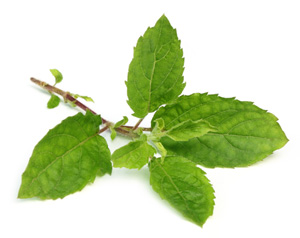Holy Basil Side Effects

A Quick Guide to Holy Basil Side Effects
Holy basil is an herb and in spite of its significance to Hindus for its spiritual benefits, as an herb you should do some research on holy basil side effects before using it for medicinal purposes. Any chemical or substance used internally should be checked out before you ingest it.
While holy basil side effects are considerably less than for many other herbs, you need to research all herbs before using them, just to be on the safe side. Known as tulsi in Sanskrit, holy basil has religious significance to the Hindus. It has many uses in alternative medicine. Some of the benefits of holy basil have been proven by tests and research studies, while others are remedies that have been passed down from generation to generation.
Let look at holy basil side effects, and then at the many benefits of the plant. Also remember that holy basil is not the same basil you can buy in the spice section of the grocery store and that many people grow in their gardens. This is an entirely different basil. While holy basil is used extensively in Eastern culture, it is not very well known at all in Western culture or the United States. You can find holy basil in health food stores and places where people practice alternative medicine.
There are very few holy basil side effects as most Asians have used the herb for many centuries with little harm done. It does seem to have the effect of thinning the blood, so this is something you should talk to your doctor about, particularly if you take anti-clotting agents. Many people have found that holy basil reduces blood sugar levels. This is particularly good news for diabetics, but if you are already on prescription medicines for diabetes control, this side effect could reduce your blood sugar by too much, causing dizziness or fainting. If you are taking holy basil, do some extra monitoring of your glucose levels.
Other holy basil side effects may affect pregnancy, such as decreasing fertility. This is true in animals and until more studies are done, women who are pregnant, want to get pregnant, or are breastfeeding should not use holy basil It is possible for drug interactions to occur, so if you take prescription medicines and want to start taking holy basil, check with your doctor. It might also be appropriate to talk with an herbalist or an alternative health practitioner. Some say not to take holy basil together with acetaminophen. Alternative health practitioners also are familiar with the appropriate dosages.
Holy basil has special properties because it belongs to a group of plants known as adaptogens. The more modern name is phytomedicines. These plants have many different benefits for humans. Near the top of the list are reducing stress, having a calming effect, and strengthening the immune system. Beyond these, adaptogens have positive effects in reducing inflammation, preventing cancers, decreasing sickness during chemotherapy (protects against radiation), strengthening the immune system and protecting the heart.
Additionally, holy basil is beneficial in the treatment of stomach problems, epilepsy, snake bites, earaches, ulcers, flu, pain, malaria, arthritis, asthma, diabetes, bronchitis, vomiting, sinusitis, and many other conditions and diseases. Much of this is possible because holy basil contains antioxidants. Holy basil is also said to balance out the charkas, so if you are into Eastern physical and mental practices, you may find the herb balances out your energies and has a calming effect, promoting overall well-being.
You can ingest holy basil as a tea, an oil, and in capsule form. The herb should not be used by children.